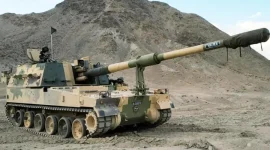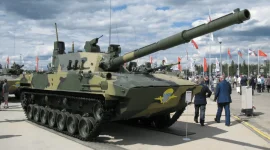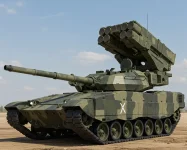
In a significant stride towards self-reliance in defence, the Indian Army has achieved a landmark feat by sourcing all its capital procurements, including emergency purchases, from domestic companies for the financial years 2022-23 and 2023-24. This achievement underscores the growing capabilities of India's defence industry and the government's commitment to promoting indigenous manufacturing.
Acceptance of Necessity (AoN) and the Procurement Process
The Acceptance of Necessity (AoN) is a crucial step in the defence procurement process, signifying the government's approval for the armed forces to procure specific equipment.In 2023-24, 83% of AoNs were granted to Indian companies, while the remaining 17% were given to foreign vendors. However, it remains unclear whether contracts were ultimately signed with these foreign vendors or if the procurement was redirected to Indian companies. Notably, no AoNs were granted to foreign entities in the financial year 2022-23.
This marks a substantial shift from five years ago, when 57% of Army contracts were awarded to Indian companies and 43% to foreign vendors. The share of contracts with Indian firms has steadily increased over the years, reaching 73% in 2020-21 and remaining consistent in 2021-22.
Focus on Indigenizing Weapon Systems and Sustenance
The Indian Army is actively working towards indigenizing the sustenance of weapon systems, which includes spares and ammunition. While progress has been made in this area, some foreign dependence persists, particularly for legacy weapon systems with limited service life and those with high cost but low demand.However, the Army aims to achieve complete indigenization of sustenance in the future. This shift in procurement strategy aligns with the government's introduction of positive indigenization lists, which prioritize domestic sourcing for a wide range of defence equipment.
The government's positive indigenization lists, along with mandates for the armed forces to procure a significant percentage of contracts from domestic industry, have played a crucial role in boosting indigenous manufacturing. These measures have encouraged the development of local capabilities and reduced reliance on foreign vendors.
While the Army still depends on imports for certain components and systems, many defence items are now manufactured locally, either through assembly or technology transfer agreements. Examples include the Zorawar light tanks, which are equipped with US-sourced Cummins engines, and the Russian-origin T90 tanks, which are manufactured by the Heavy Vehicles Factory (HVF) in Chennai.
Key Contracts Signed in 2023-24
The Army signed numerous contracts for various equipment in 2023-24, including telescopic sights for assault rifles, border security systems, remotely piloted aerial vehicles, AI-based satellite image analysis tools, T-72 driving simulators, night sights for assault rifles, ALH Mk-III helicopters, and BMP-II upgradation kits.The Army also made several emergency procurements from Indian companies, including ballistic helmets, combat weapon training simulators, quick reaction force vehicles, light strike vehicles, remotely piloted aerial vehicles, hand-held thermal imagers, loitering munitions, vehicle-mounted infantry mortar systems, and fourth-generation ATGM launchers.




